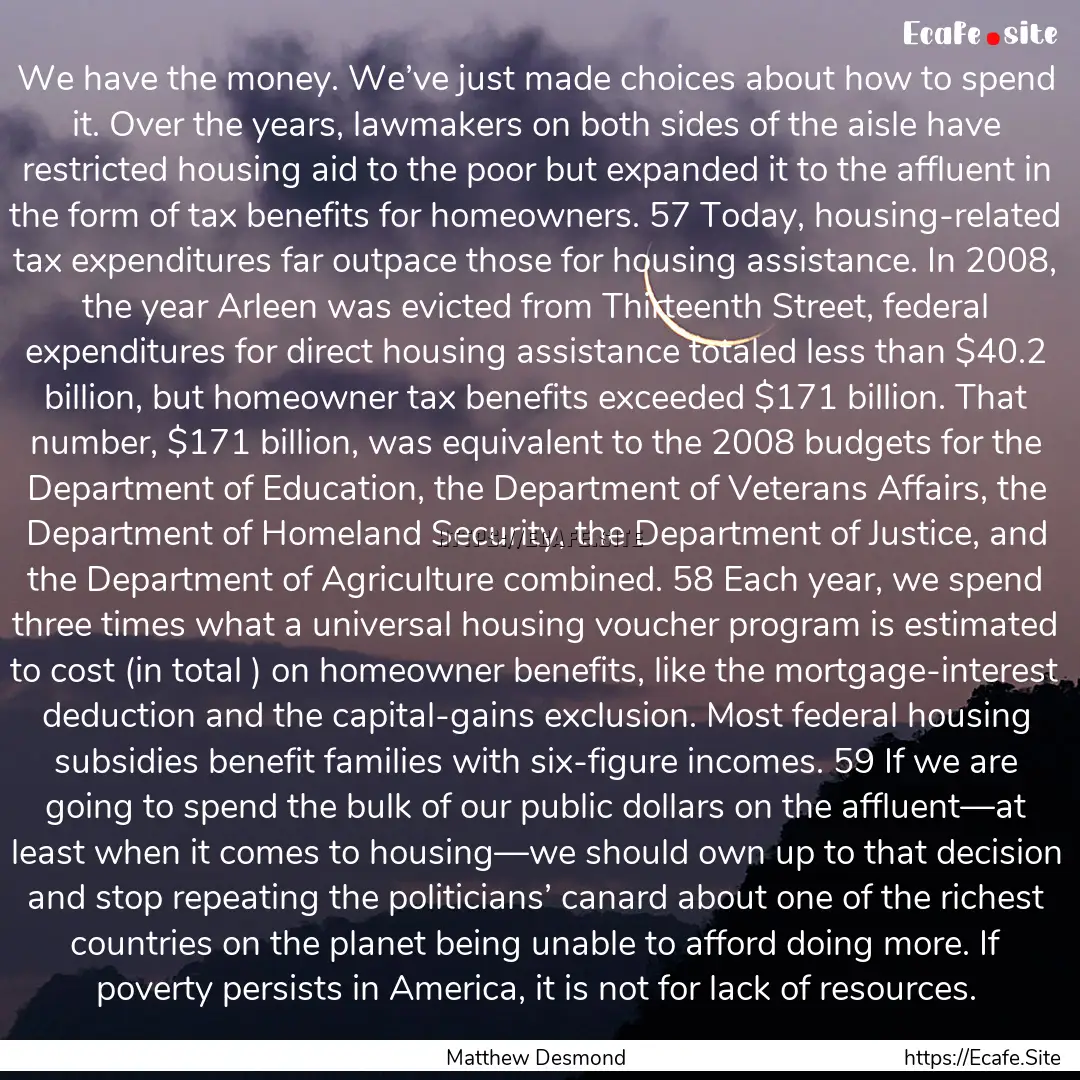
Report, if you have a problem with this page“ We have the money. We’ve just made choices about how to spend it. Over the years, lawmakers on both sides of the aisle have restricted housing aid to the poor but expanded it to the affluent in the form of tax benefits for homeowners. 57 Today, housing-related tax expenditures far outpace those for housing assistance. In 2008, the year Arleen was evicted from Thirteenth Street, federal expenditures for direct housing assistance totaled less than $40.2 billion, but homeowner tax benefits exceeded $171 billion. That number, $171 billion, was equivalent to the 2008 budgets for the Department of Education, the Department of Veterans Affairs, the Department of Homeland Security, the Department of Justice, and the Department of Agriculture combined. 58 Each year, we spend three times what a universal housing voucher program is estimated to cost (in total ) on homeowner benefits, like the mortgage-interest deduction and the capital-gains exclusion. Most federal housing subsidies benefit families with six-figure incomes. 59 If we are going to spend the bulk of our public dollars on the affluent—at least when it comes to housing—we should own up to that decision and stop repeating the politicians’ canard about one of the richest countries on the planet being unable to afford doing more. If poverty persists in America, it is not for lack of resources. ”

Matthew Desmond
From : Evicted: Poverty and Profit in the American City



